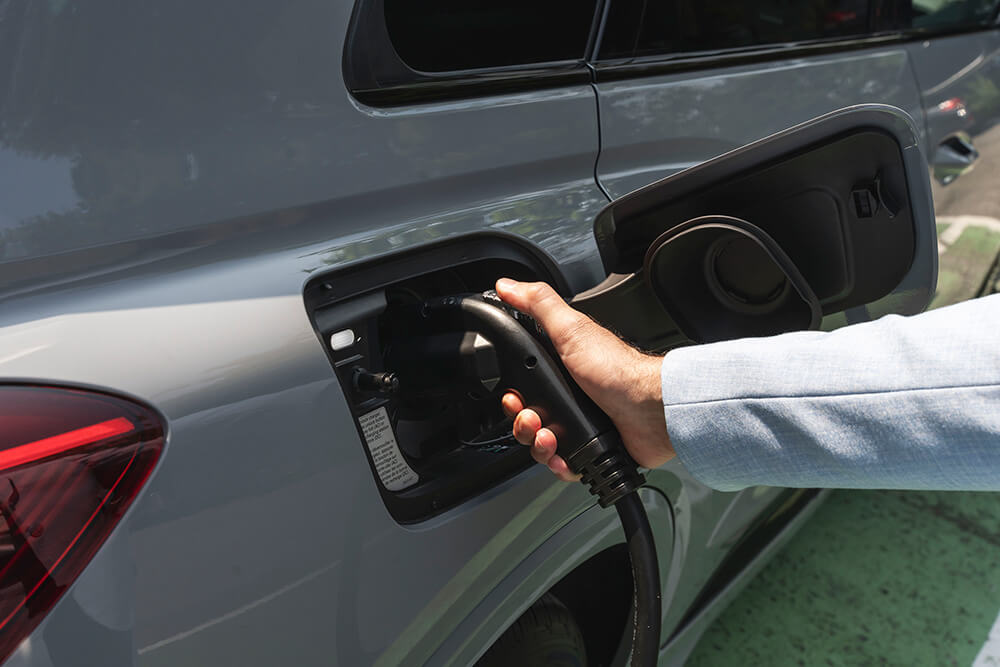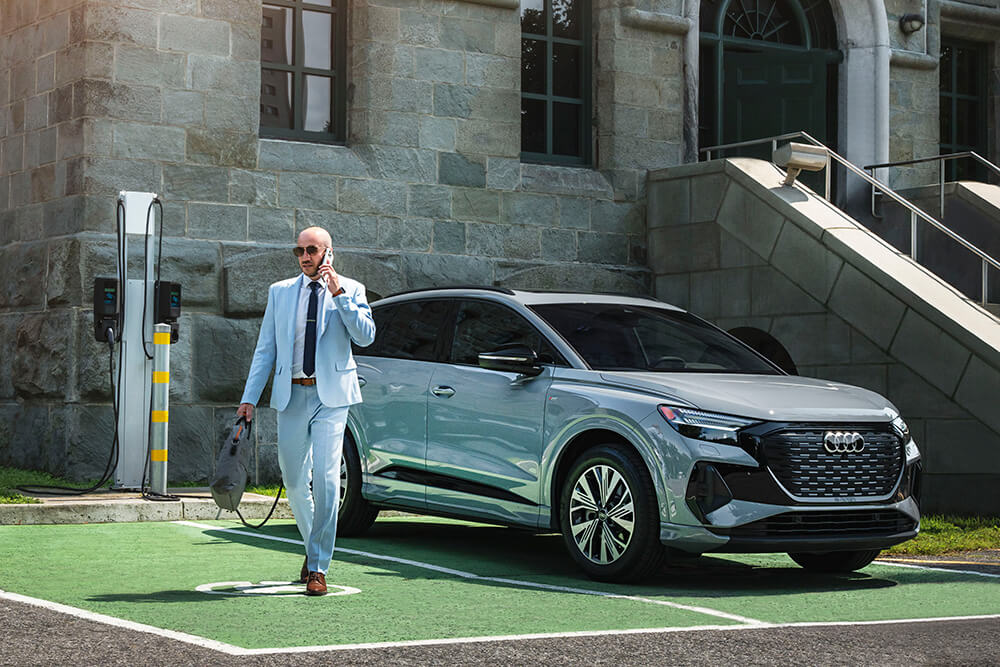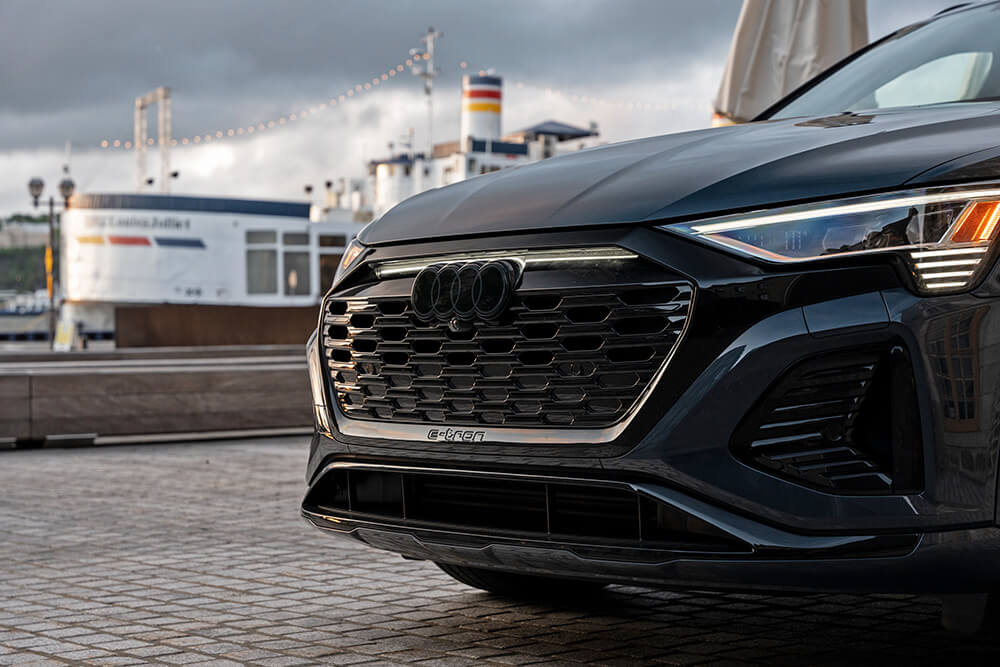SITEBUILDER_BIEN_CHOISIR_SON_V_HICULE__LECTRIQUE__1_PAGE_TITLE
Which EV is Right for Me?
Benefits of Plugging In
70%
Owning an EV
Understanding Charging
Charging times vary depending of the type of charger used.
Level 1 chargers use a standard household outlet and charge about 3-8 km of range per hour, making Level 1 a good choice for plug-in hybrid vehicles but not battery electric vehicles.
Level 2 chargers can be installed at your home by a professional electrician and charge about 16-32 km of range per hour. A good choice for any EV when charging overnight or all-day is possible.
Level 3 fast chargers are the most efficient and can be found at commercial locations. Level 3 can charge about 96-128 km of range in about 20 minutes, making it a good choice for any EV when a quick charge is needed on the go.

Charging from Home
For plugin hybrid vehicles, a standard outlet (Level 1) will be enough for overnight charging. For battery electric vehicles, a Level 2 charger will require professional installation by a licensed electrician. If you live in an apartment or condo, consider talking with the property owner about installing a charger or use a nearby public charger. Talk to our sales staff to find out more about charging from home.

Battery Care
Most batteries will last between 160,000 and 320,000 km when properly cared for. With battery technology continually advancing, that number will continue to increase. If you can keep your battery between 20% and 80% charged most days and avoid extremely hot temperatures, you can expect your maintenance to be minimal.

Charging Stations Near Audi de Québec
Common Questions
- Eligible EVs may also qualify for HOV lane access, which are normally restricted to vehicles with multiple passengers.
- If you're able to charge from work or home, there's usually no need to stop to refuel like you would in a gas-powered vehicle.
- EVs produce zero tail-pipe emissions resulting in cleaner air and better health.
Source: Hydro-Québec
Source: Benjamin Preston. October 08, 2020. EVs Offer Big Savings Over Traditional Gas-Powered Cars.
https://www.consumerreports.org/hybrids-evs/evs-offer-big-savings-over-traditional-gas-powered-cars/
- Level 1 chargers use a standard household outlet and charge about 3-8 km of range per hour, making Level 1 a good choice for plug-in hybrid vehicles, but not battery electric vehicles.
- Level 2 chargers can be installed at your home by a professional electrician, and charge about 16-32 km of range per hour. A good choice for any EV when charging overnight or all-day is possible.
- Level 3 fast chargers are the most efficient and can be found at commercial locations. Level 3 can charge about 96-128 km of range in about 20 minutes, making it a good choice for any EV when a quick charge is needed on the go.